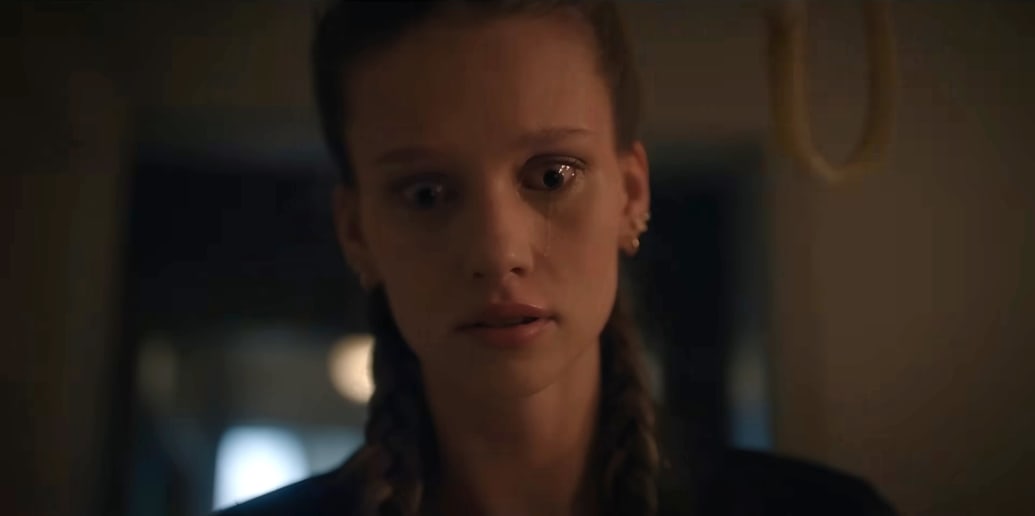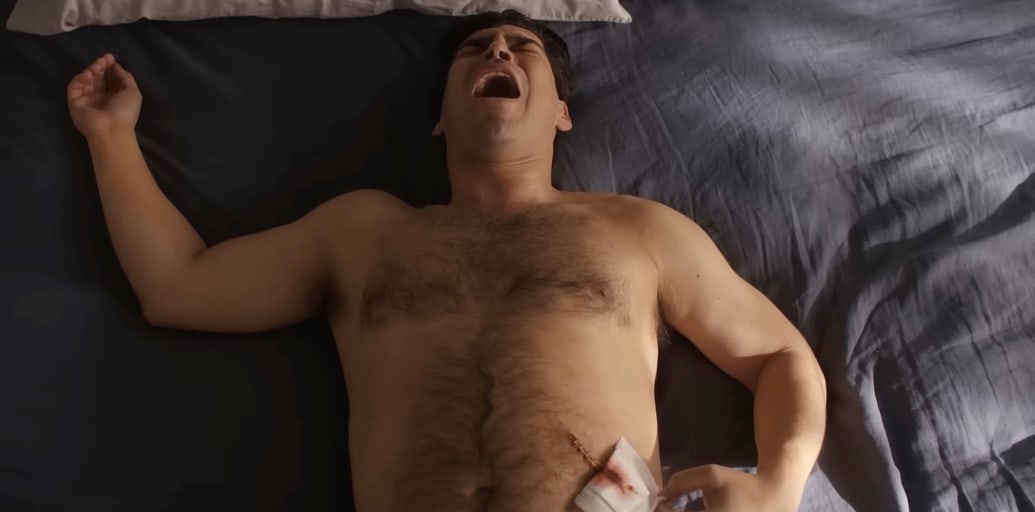Which is more durable for a TV writing employees: Sustaining a single thought over the course of a serialized season, or developing with sufficient concepts to fill a season’s value of particular person episodes? It’s a trick query: Every mannequin provides its benefits and downsides, and the ups and downs particular to American Horror Tales’ one-by-one anthologizing are the unifying thread between its in any other case freestanding installments.
Bulk launched Oct. 26 straight to Hulu simply in time for the streamer’s Huluween, the commonly robust four-part third season excels in establishing and growing premises too compact for multi-hour telling, however repeatedly suffers from anticlimactic fizzles that show how troublesome sticking a short-form touchdown may be. Like a wad of Hubba Bubba, the goodies on this seize bag of poison-laced treats begin candy, then lose their taste all too shortly.
In “Bestie,” new lady at college Shelby (Emma Halleen) retreats from bullies, her well-meaning dad, and the persistent grief from her mom’s dying by befriending the opposite lingerer (Jessica Barden) within the reside chatbox on her favourite drag YouTuber’s channel. As codependence blossoms over video calls late into the evening, the precise dynamic between on-line strangers—the fast-moving, liberating intimacy afforded by anonymity—takes on the identical grimly coercive hue glimpsed in We’re All Going to the World’s Honest.
Barden’s enigma, referred to solely as “Bestie,” provides empowerment to Shelby, who glows up with the assistance of some make-up contouring tutorials, although that assist can simply mutate into manipulation. The connection’s plausibility is the chilling half, however the episode appears extra afraid of its villain’s facial deformities from in-utero publicity to narcotics—an ableist standby that smartened-up horror has largely left behind.

“Daphne” articulates one other poisonous infatuation mediated by expertise, this time between a hotshot artwork collector (Reid Scott) and his artificially clever private assistant (voiced by Gwyneth Paltrow, as if daring the general public to search out her indifferent and unrelatable). The hunk of color-changing glass figuring out itself as Daphne is just about Alexa with out the moral guardrails, utilizing its digital omniscience to blackmail and extort on behalf of her delighted grasp.
The anticipated risks of computerized consciousness cling over this cautionary story, although the actual subject is a matter of person error, as an emotionally stunted man finds the superbly obedient feminine character to allow his self-absorption throughout a lockdown within the pandemic of tomorrow. Reducing-edge devices are solely hazardous insofar as they indulge and enlarge our personal flaws, a sturdy notion made funnier but dumber as Daphne evolves into the jealous, possessive girlfriend of her solipsistic’s proprietor’s nightmares.
It could’ve been simple sufficient to test off “Tapeworm” because the Ozempic episode, that includes a miracle weight-loss drug that works just a bit bit too effectively. However as soon as bold mannequin Vivian Lee Finch (Laura Kariuki, her character named after the film star who George Cukor as soon as known as “hampered by magnificence”) steps up her recreation by deliberately ingesting a parasite given to her by a sketchy physician (Rob Yang), the episode begins burrowing deeper and deeper into the disturbing pathology of disordered consuming.
Vivian is consumed by obsessive starvation—for skinniness and success greater than meals. Her bulimia can’t be placated, winnowing away the kilos with the identical insatiability that takes maintain of Viv as she turns ruthless in her skilled ladder-climbing. To name this an aesthetically dulled Neon Demon may not be inaccurate, and but it could be uncharitable for a half-hour that demonstrates a deeply felt and critically unsettling immersion in a distorted mindset.

“Organ” is skinny in a extra metaphorical sense, with a skimpy premise providing little in the best way of unique commentary or easy suspense. A chauvinist (Raúl Castillo) wakes up from an app date to search out himself brief one kidney, although he’s principally involved in regards to the unidentifiable mass implanted inside him that surgeons can not take away with out threatening his life. The anticipated ring of black-market body-parts traffickers doesn’t conceal rather more than meets the attention; the not-really-reveal that they’re rising designer innards may perhaps go as a imprecise knock on tiered healthcare—both that, or a tut-tutting warning to not sleep round, since you by no means know which one-night stand will depart you with an stomach scar.
Whereas the American Horror Story mothership collection sputters and stunt-casts in its zillionth season, its demonic little sibling advantages from the liberty to get in, make a degree, and excuse itself earlier than carrying out its welcome. For the reason that days of The Outer Limits and The Twilight Zone, discreteness has been a present that may simply as simply flip curse, containing the unhealthy whereas truncating the nice. Viewers can’t spend sufficient time with any of those characters to foster affinities for them, like they did with the unique American Horror Story’s series-best ensemble within the Coven season. As a tradeoff, in addition they don’t have to fret about spending an entire yr caught with duds. It’s Halloween mischief 101: You ding, you dong, and also you ditch.
